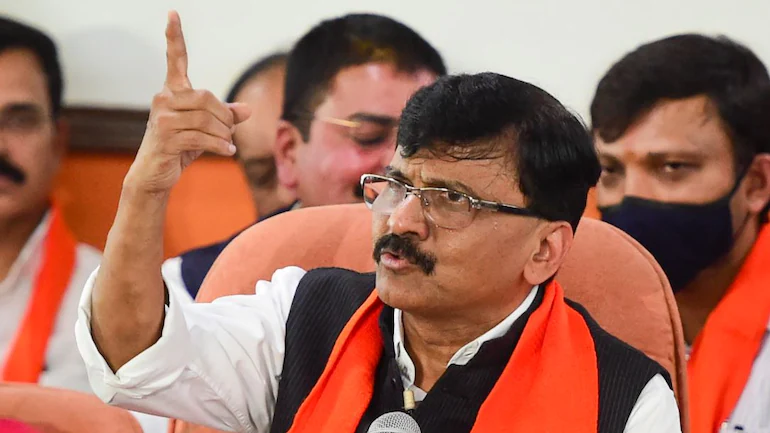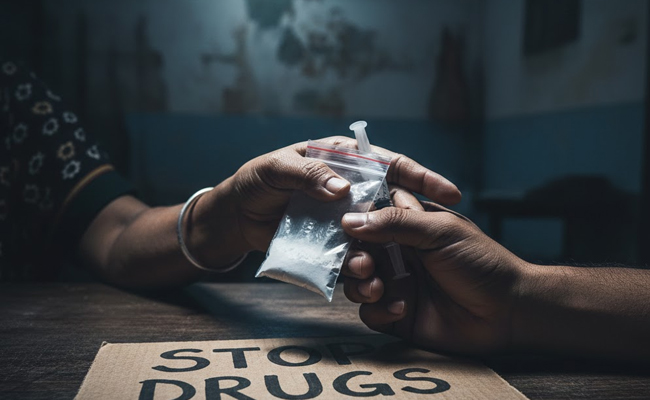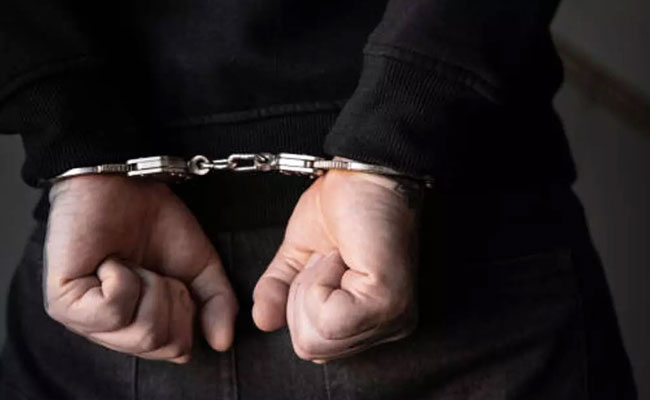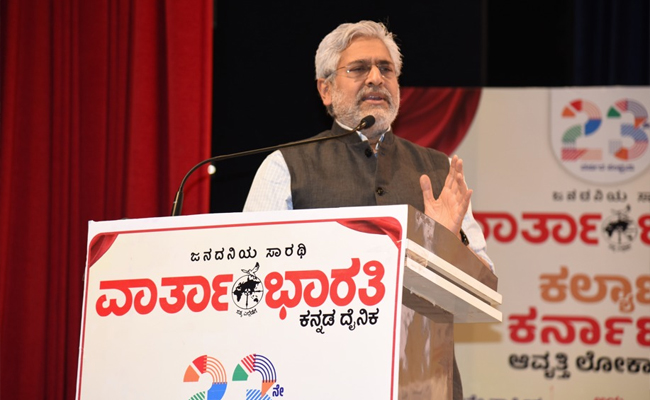Nagpur, Dec 21: Amid the simmering border dispute between Maharashtra and Karnataka, Shiv Sena (UBT) leader Sanjay Raut on Wednesday stoked a controversy, saying they will enter the neighbouring southern state the way China has "invaded" Indian territory.
Amid the tension in border areas of the two states, Maharashtra minister Shambhuraj Desai said if Karnataka Chief Minister Basavaraj Bommai does not stop making irresponsible statements, Maharashtra will have to rethink about water supply from its dams to the neighbouring state.
A day before, Nationalist Congress Party (NCP) leader Jayant Patil had said Maharashtra should raise the height of the upstream dams to "rein in" Karnataka.
"The way China has invaded (Indian territory), we will do the same in Karnataka. We do not need anyone's permission to do so," Raut told reporters in Delhi.
"We want to resolve the issue through dialogue but the Karnataka chief minister is setting everything ablaze (with his statements). Maharashtra has a weak government (in power) and thus could not take any stand against that state," he said.
Addressing reporters in the Vidhan Bhavan complex in Nagpur earlier in the day, minister Desai slammed Bommai over the Karnataka government's stand that not an inch of land will be given to Maharashtra.
Desai and his cabinet colleague Chandrakant Patil were appointed as nodal ministers to coordinate with the legal team regarding a court case on the state's border dispute with Karnataka.
The Karnataka legislature has reiterated the state's stand that the border issue is a settled one, and not an inch of land will be given to the neighbouring state.
During a debate on the border dispute in the Karnataka Legislative Assembly on Tuesday, CM Bommai himself suggested passing a unanimous resolution in both Houses of the state legislature reiterating and asserting the stand.
Desai said he condemned such comments, which do not suit Bommai as he holds a constitutional post.
When the case is sub-judice, a chief minister using such a "threatening language" is not good and he should stop it, he said.
"Even Maharashtra can reply in the same language and he should not provoke us," Desai said.
Maharashtra is maintaining patience and the Karnataka CM should keep in mind that the southern state is very much dependent on water supply from the Koyna and Krishna dams (in Maharashtra) during the dry season of March and April, he said.
"If Karnataka does not stop (making such statements), then Maharashtra will have to rethink over the water being supplied to the neighbouring state," Desai said.
Maharashtra stands firm with the Marathi-speaking people residing in the border areas, he added.
The border issue dates back to 1957 after the reorganisation of states on linguistic lines.
Maharashtra laid claim to Belagavi, which was part of the erstwhile Bombay Presidency, as it has a sizeable Marathi-speaking population. It also laid claim to more than 800 Marathi-speaking villages which are currently part of Karnataka.
Karnataka maintains the demarcation done on linguistic lines as per the States Reorganisation Act and the 1967 Mahajan Commission Report as final.
Let the Truth be known. If you read VB and like VB, please be a VB Supporter and Help us deliver the Truth to one and all.
Srinagar (PTI): Property worth Rs 1 crore belonging to a notorious drug peddler was on Saturday attached in Jammu and Kashmir's Srinagar, police said.
A double-storey house on eight marlas of land situated at Wantpora Eidgah, belonging to Basit Bilal Dar, a notorious drug peddler, valued at approximately Rs 1 crore, a police spokesperson said.
He said Dar is involved in two cases registered under various sections of the NDPS Act.
During investigation, it was established that the accused had acquired the said property through illicit proceeds generated from drug trafficking activities, the spokesperson said.
Consequently, the property was attached under the provisions of the NDPS Act. The attachment proceedings were conducted in the presence of the two independent witnesses, strictly in accordance with the prescribed legal procedures, he said.
As per the attachment order, the owner has been restrained from selling, leasing, transferring, altering, or creating any third-party interest in the property till further orders, the spokesperson added.





